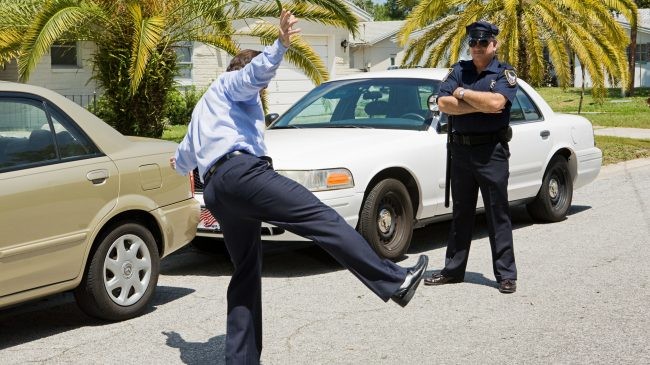Should One Submit to Voluntary DUI/DWI Testing?
You must have encountered a sobriety checkpoint before and wondered what to do, and if they are legal at first. Yes, they are legal. The US Supreme Court upheld the validity of the checkpoints even though the law generally forbids that law enforcement officers stop anyone for a check except a valid suspicion of road use law violations. In any case, if you have been stopped for a DUI at checkpoints before, there is every probability that the cops will propose DUI tests to you. What do you do at that instance?

Contrary to popular opinion, the answer we will advise here is that you should not submit to a voluntary DUI test. However, before taking this decision, you must be confident of having a DUI attorney who would defend your position and you must also be able to differentiate between a voluntary DUI test and involuntary ones. For example, Field Sobriety Tests (FSTs) are completely voluntary DUI tests. A compulsory completion is not required under the law. In contrasts, Breathalyzer tests or blood sample examination are not sobriety tests and must be performed. Refusing to perform them may attract serious consequences.
No matter what amount of pressure mounted on you by law enforcement officers about refusals, you do not have to take them. It is only one of those ways officer would often use to create statements that are half true about you and your DUI status. Do not get it wrong, it is true that you may lose your license for refusing to take a chemical tests, but there are absolutely no additional penalties for refusing fields sobriety tests that are voluntary. You must not take the tests because your performance on the tests could be used strongly against you as evidences which are most times admissible by DUI courts. Make it clear to the enforcement officers that you are declining the voluntary tests and not some breadth or blood tests. This is because they may intentionally confuse the whole situation to ramp up evidence against you to have refused all the tests they propose.
When chemical tests are required in Denver, Colorado
You are advised to know your rights and not just submit unnecessarily to chemical tests proposed by cops in Colorado. The cops that make your arrest must be able to establish the cause of the arrest before making you submit to any tests. The most common way to establish a cause for the arrest is through performance and evaluations drawn from voluntary roadside maneuver activities. This is referred to as Standardized Field sobriety Tests. They were developed and proposed by the National Highway Traffic Safety Administration (NHTSA) and has since been adopted throughout the country to detect alcohol consumption inspired impairments.
Facts about the Standard Field Sobriety Tests (SFST)
Most Denver DUI attorneys are NHTSA certified SFTS instructors. They have been trained on a dozen or more maneuvers that are often used by local law enforcers to detect impairment and intoxication. Of all the tricks however, only three are mostly administered and evaluated as impairment indicator for DU arrests. These are;
- Horizontal Gaze Nystagmus (HGN)
- One-Leg Stand (OLS)
- Walk-and –Turn (WAT)
Suspect responses to these tests are often evaluated and used in determining if an arrest is to be made for DUI or otherwise.
Test Reliability Level
According to NHTSA claims, all three tests are expected to provide an overall efficiency of 91 percent in identifying if a BAC is above 0.08. However, this number has been confirmed misleading as it assumes that law enforcement officer performs each and every tests correctly. It also assumes that ideal weather and roadside conditions are followed and that subjects doesn’t possess medical conditions that could possibly give false indications and negative performance other than intoxication. Based on these and other limitations associated with our firsthand experiences with the Standard Field Sobriety Tests, they are believed unreliable and we usually advise our clients to reject them. In which case the issue gets complicated and confused by law enforcers, we always stand up to the right of our clients and defend them appropriately.
Turning around at a checkpoint to avoid Field Sobriety Tests
We have had to explain this over and over because a lot of people said they prefer to turn around at a checkpoint rather than argue with law enforcement officers over which test to take or not. We do not advise that you turn around at checkpoints as you may brew suggestions that you are driving under influence and trying to run away. Yet, we should not restrain from telling you that there are no laws barring you from turning at a checkpoint if you find it appropriate. However, there are laws governing how you make the turn and when you make them. Still, police officers are not allowed to chase after you because they are suspicious.









